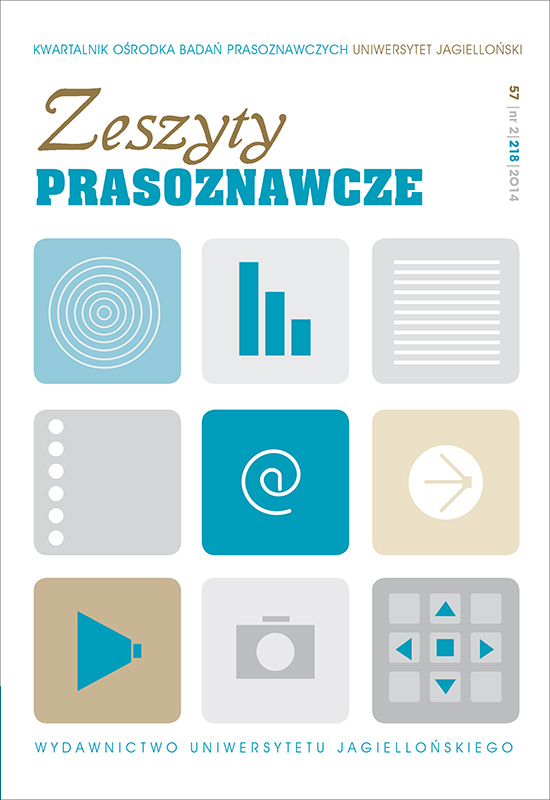Kłamstwo i polityczna paranoja w kontekście wizerunkowych strategii PR i marketingu politycznego
Kłamstwo i polityczna paranoja w kontekście wizerunkowych strategii PR i marketingu politycznego
Author(s): Agnieszka Walecka-RynduchSubject(s): Social Sciences, Communication studies
Published by: Wydawnictwo Uniwersytetu Jagiellońskiego
Keywords: mediatisation (medialisation) of social life; culture and politics
Summary/Abstract: The shaping of a politician’s image may be considered in terms of various research aspects. The purpose of this article is to draw attention to the issue of the use of communication strategies from the fields of PR and political marketing in the context of building a negative message, using the following mechanisms: anomie, conspiracy theory – political paranoia and political lies. From a psychological point of view, anomie can mean “a dearth of sense, a dearth of meaning”. The cause of this phenomenon is always sought for outside ourselves, in states of confusion and disorientation, when we want to find those guilty of an event/socio-political situation. These treatments are frequently combined with the building of a “conspiracy theory”. They appear at specific moments in history, or in specific socio-political formations. They may relate to the collective mentality (operating on the principle of legends or myths). In the analysed context, they are states of consciousness of an individual who also performs important public and political functions. Their use in a political creation consists primarily of finding, for oneself and others, the existence of a collective enemy and fighting it. The result of this approach is the creation of the phenomenon of “political paranoia” as a particular way of thinking about politics. Another element of this puzzle is the articulation by politicians of a political lie. This phenomenon (according to definition) occurs when someone utters a claim that s/he knows or suspects is false, in the hope that others will consider it to be true. Lying is an action deliberately
Journal: Zeszyty Prasoznawcze
- Issue Year: 2014
- Issue No: 2 (218)
- Page Range: 377-393
- Page Count: 17
- Language: Polish

